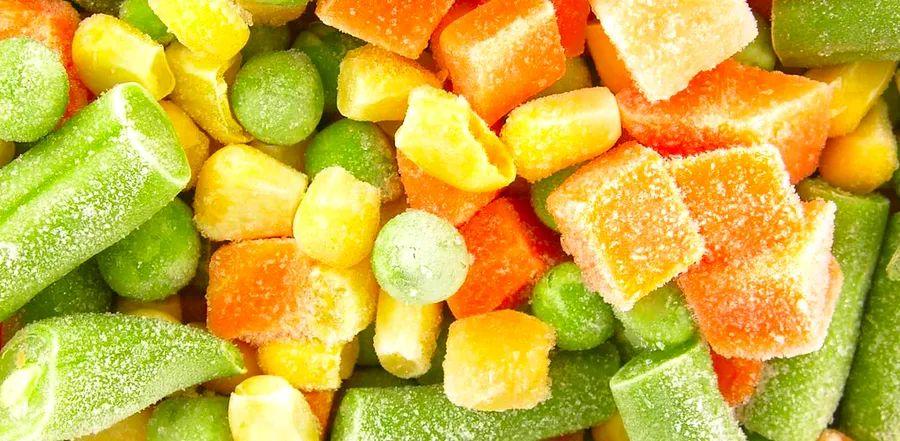4 Common Mistakes You're Likely Making When Cooking Frozen Vegetables

Whether you're choosing fresh or frozen, veggies pack a powerful nutritional punch. If they're in season, on sale, or you plan to cook them soon, fresh can be the way to go.
But for those busy weeknights when you need to have vegetables on hand for quick meals, frozen options are a smart and cost-effective choice.
That said, there are a few common cooking missteps with frozen veggies that can make your meal fall flat. Avoid these pitfalls for tastier, more nutritious dishes using frozen produce.
Believing All Frozen Veggies Must Be Cooked Before Eating
Yes, you can enjoy frozen veggies straight from the freezer—no need to cook them in a pot, pan, or microwave. As Toby Amidor, MS, RD, best-selling author of *Smart Meal Prep for Beginners* and *The Healthy Meal Prep Cookbook* explains, “You don’t need to cook frozen veggies, just like you don’t need to cook frozen fruit.”
You can simply thaw them and toss them on a salad—just make sure they’re fully thawed and brought to room temperature beforehand,” she adds.
Eating veggies raw can actually boost their nutritional benefits and save you time. As Dana Angelo White, MS, RD, author of *Healthy Air Fryer Cookbook*, explains, “High heat can destroy certain nutrients like vitamin C, but don’t worry too much—you really have to overcook to lose all the vitamins.”
For example, frozen corn can be thawed under cold water and then added straight to a salad. Heating and cooling it works too, but it takes a bit longer. I love using frozen cauliflower in smoothies for an extra nutrient boost, plus it gives the smoothie a nice frosty texture,” she says.

Find the recipe here: Sheet Pan Roasted Vegetables
Thawing All Frozen Vegetables
This step isn’t always required, and it can be a waste of time. “It really depends on what you're cooking. You can cook frozen vegetables directly from the freezer,” says Amidor.
“Since they’re smaller pieces (unlike a large beef or pork roast, for example), as long as they reach an internal cooking temperature of at least 135°F, they’re safe to eat,” she explains, so defrosting is optional.
In fact, defrosting frozen herbs may not be ideal, according to White. “Frozen herbs are great for adding flavor, but don’t thaw them—they lose their texture during freezing. Instead, add them directly to hot dishes like soups, sauces, or cooked pasta,” she advises.
“For vegetables like broccoli or bell peppers, you have more flexibility. They can be thawed and reheated without losing their texture,” says Amidor. Most other vegetables can also be cooked either way. However, in some cases, it’s better to fully thaw and drain any excess liquid from frozen veggies to prevent your dish from becoming too watery,” she advises.
Relying Only on the Microwave
Microwaving veggies is a quick and convenient option when you’re short on time. “The microwave works best for foods with smaller surfaces, like green beans, corn, peas, and carrots. I wouldn’t waste time defrosting them on the stovetop when I can just pop them in the microwave,” says White.
However, “just like any cooking method using moisture, microwaving too long can cause nutrient loss,” warns Amidor. Instead, consider other methods like steaming, blanching, sautéing with minimal oil, or stir-frying for better results.
If you're using the microwave, which is perfectly fine, keep an eye on your cooking time. “The microwave's power can vary, so start with 60 seconds and adjust from there. Be sure to stir regularly, as most microwaves have hot spots,” advises White.
Not Adjusting the Cooking Time
Cooking times for frozen vegetables can vary, so don’t assume they all require the same treatment.
“Different veggies take different amounts of time to cook. Smaller, thinner, or softer vegetables, like a pea-carrot mix, will cook faster,” says Amidor. “On the other hand, larger or tougher vegetables like squash or big chunks may need more time to cook thoroughly,” she explains.
Adding a bit of water to smaller veggies, like peas or corn, can help them cook more evenly,” advises White.
And larger vegetables should probably be cooked rather than eaten raw. “The biggest ones that really need cooking are potatoes, sweet potatoes, and butternut squash. Cooking them makes them more tender and easier to eat,” says White.
Pro Tip: Always check the manufacturer's guidelines for optimal cooking times before you start your recipe.
Evaluation :
5/5



